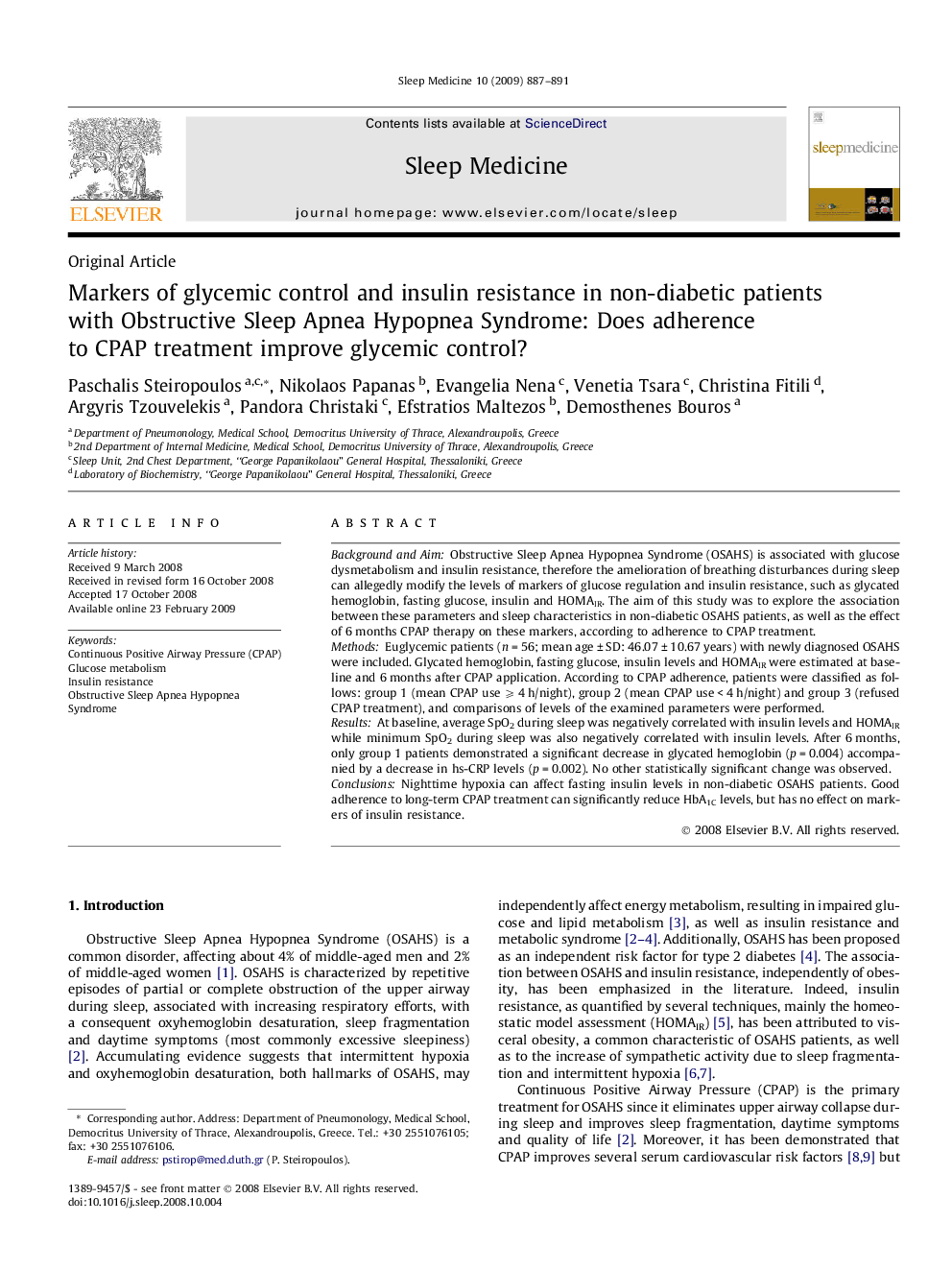| کد مقاله | کد نشریه | سال انتشار | مقاله انگلیسی | نسخه تمام متن |
|---|---|---|---|---|
| 3176791 | 1200280 | 2009 | 5 صفحه PDF | دانلود رایگان |

Background and AimObstructive Sleep Apnea Hypopnea Syndrome (OSAHS) is associated with glucose dysmetabolism and insulin resistance, therefore the amelioration of breathing disturbances during sleep can allegedly modify the levels of markers of glucose regulation and insulin resistance, such as glycated hemoglobin, fasting glucose, insulin and HOMAIR. The aim of this study was to explore the association between these parameters and sleep characteristics in non-diabetic OSAHS patients, as well as the effect of 6 months CPAP therapy on these markers, according to adherence to CPAP treatment.MethodsEuglycemic patients (n = 56; mean age ± SD: 46.07 ± 10.67 years) with newly diagnosed OSAHS were included. Glycated hemoglobin, fasting glucose, insulin levels and HOMAIR were estimated at baseline and 6 months after CPAP application. According to CPAP adherence, patients were classified as follows: group 1 (mean CPAP use ⩾ 4 h/night), group 2 (mean CPAP use < 4 h/night) and group 3 (refused CPAP treatment), and comparisons of levels of the examined parameters were performed.ResultsAt baseline, average SpO2 during sleep was negatively correlated with insulin levels and HOMAIR while minimum SpO2 during sleep was also negatively correlated with insulin levels. After 6 months, only group 1 patients demonstrated a significant decrease in glycated hemoglobin (p = 0.004) accompanied by a decrease in hs-CRP levels (p = 0.002). No other statistically significant change was observed.ConclusionsNighttime hypoxia can affect fasting insulin levels in non-diabetic OSAHS patients. Good adherence to long-term CPAP treatment can significantly reduce HbA1C levels, but has no effect on markers of insulin resistance.
Journal: Sleep Medicine - Volume 10, Issue 8, September 2009, Pages 887–891